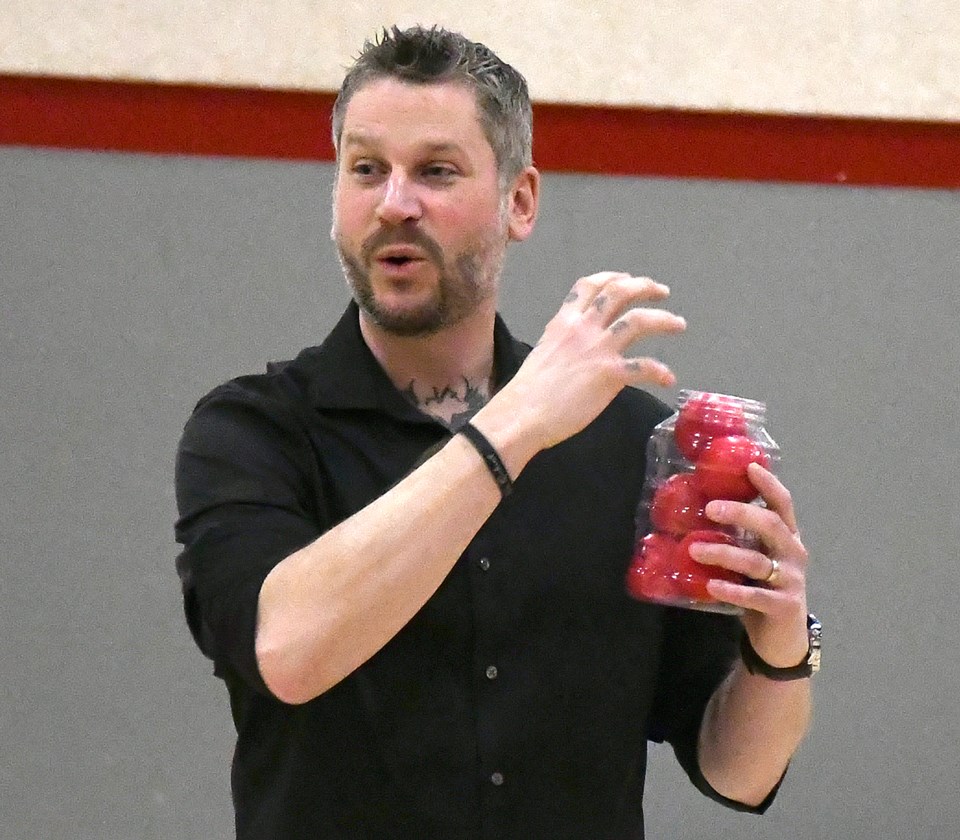Allan Kehler is the first to admit he was in a very, very bad place when it came to his mental health not very long ago.
It reached a point where he needed help, and knew he needed help, but like so many men suffering from such issues, he couldn’t get around the stigma surrounding people such as him reaching out.
But one group meeting -- one he had to utterly force himself to attend when he was at one of his lowest points -- changed everything. And it was one offhand quip from the only other guy in the group as Kehler struggled to tell his story that did it.
“It’s okay, Al, I get it.”
With that, his journey as a mental health advocate was underway.
Now a renowned public speaker with four books on mental health to his credit, Kehler was in Moose Jaw for a pair of speaking engagements at Vanier Collegiate on Wednesday, first speaking at a school assembly in the morning and following with a public seminar in the evening.
At both events, Kehler spoke toward erasing the very same stigma that made it so difficult for him to get help, the same kind of stigma and fear that makes it all but impossible for many in the same situation to do the same.
“I have a very twisted sense of gratitude for a lot of the pain that I've gone through because it's brought me to today,” Kehler said. “I think that because I'm able to be vulnerable, vulnerability breeds vulnerability, and therefore the responses often create connections… so I think it just strengthens the conversation that really has to be had.”
Part of that was the second part of the evening seminar, which featured a talking circle where folks could share their own experiences.
“It strengthens communities because you can start to hear that other people have similar fears, you can start to see how people unite and come together and strengthen the community,” he said. “It’s all part of learning and healing and it’s time that everyone who needs it should be able to do so without worrying about what other people will think.”
The assembly was especially touching for Kehler because it included an example of mental health reaching the saddest point, as Vanier lost a student to depression only a few months earlier.
“Yeah. It was hard,” Kehler admitted. “I've done hundreds of these, never have I broke down and cried and it's because they lost a good friend in Pedro. And we were able to create a safe space where we could come together and talk about it address our fears, that it was okay to cry. Kids are vulnerable. It was hard but it was beautiful at the same time.”
A key component of every one of his talks is one that has been stressed time and again and can’t be stressed enough -- you are not alone. Help is not only out there, it’s waiting. And it can change your life.
The good news is Kehler is starting to see more and more fruits of his labour. He spoke about men he interviewed over the years who saw their lives improve dramatically just by talking to someone and understanding how to fix things. Then there are the myriad social media initiatives that continue to spread the message that it’s okay to talk about your mental health, many of them focussing on men.
“I think the message resonates with some people, they understood the importance of talking about their pain, they understood the importance of reaching out,” Kehler said. “Because of that, we're moving the right way.
“I think in every community, you're starting to see more and more men stepping up saying, ‘hey, this is what I've gone through’, and then all sudden, because of that vulnerability, another person says, ‘hey, yeah, I appreciate that, here's what I went through’. So it’s moving forward all the time.”
For more on Alan Kehler, his journey and his message, visit www.allankehler.com. And to learn more about the Journey to Hope, their suicide prevention work and mental health advocacy, be sure to visit www.journeytohope.synthasite.com.
If you feel you need help and have no one to talk to, simply call 811, and a mental health professional will take you on your first steps to a better world.




